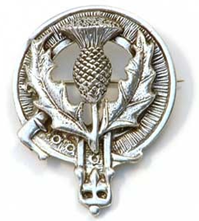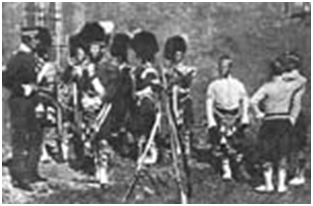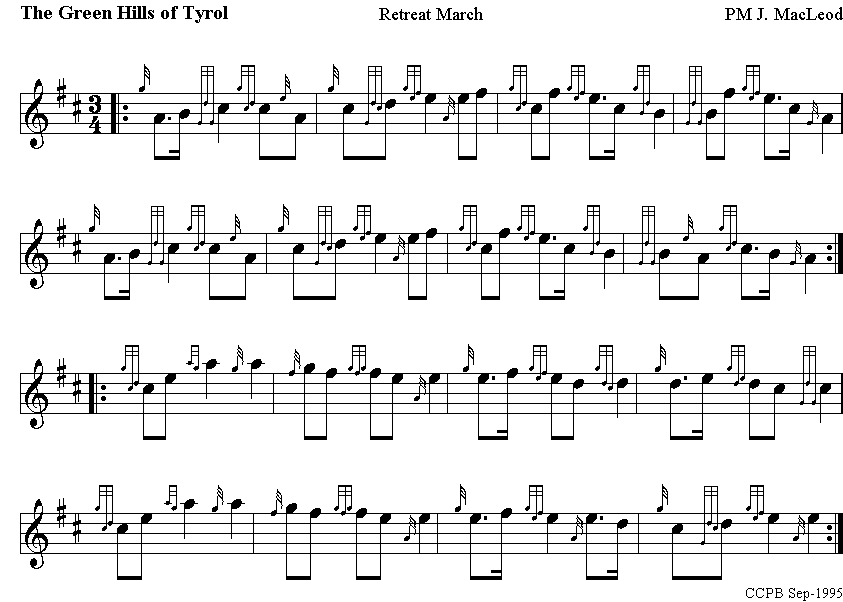 |
||

Best viewed in
|
The Green Hills of Tyrol is one of the best known, and oldest, tunes played by pipe bands today. It was originally from the opera "William Tell" by Rossini, but was transcribed to the pipes in 1854 by Pipe Major John MacLeod after he heard it played by a Sardinian military band when serving in the Crimean War with his Regiment, the 93rd Sutherland Highlanders. Pipe Major MacLeod himself was well liked in his Regiment, and had a reputation for selflessness and amiability. In October of that year MacLeod and five other pipers participated in the event that made the Regiment’s reputation. The Russian heavy cavalry had taken the Causeway Heights, and its gun emplacements, above the supply port of Balaclava. Only the Sutherland Highlanders under Sir Colin Campbell stood between them and the port – the capture of which would have ended the campaign there and then. The heavy cavalry rolled down the hill onto the 93rd. Ordered to die where they stood if need be, the 93rd was formed into an extended line two ranks deep rather than in the defensive square formation more usually adopted by infantry facing a cavalry attack. The 93rd stood its ground, firing controlled volleys into the attacking cavalry. The cavalry faltered and veered to the left of the 93rd exposing their flank to more fire. The Russians were then beaten off by an audacious uphill charge by a smaller brigade of the British heavy cavalry. Some of the 93rd then made out to charge with the bayonet, but Sir Colin Campbell put paid to the notion, reputedly bellowing "93rd, damn all that eagerness". In any event Balaclava was saved and the Sutherland Highlanders secured their place in history. The repelling of a heavy cavalry charge by grossly outnumbered infantry was an unprecedented achievement. The feat was witnessed by The Times’ war correspondent who immortalized the 93rd as "the thin red streak tipped with a line of steel". Almost immediately the 93rd embedded itself in the Victorian popular consciousness as "the thin red line" and came to symbolize the perceived stoic bravery of all British soldiers. Unfortunately the debacle of the charge of the Light Brigade later that same day led to a stalemate at Balaclava and the war dragged on throughout the winter. When the Crimean campaign finally ended the 93rd were immediately dispatched to fight in the Indian Mutiny. In this campaign Pipe Major MacLeod distinguished himself at the siege of Lucknow when he was first through the breach and almost immediately began playing the pipes.
|
|

